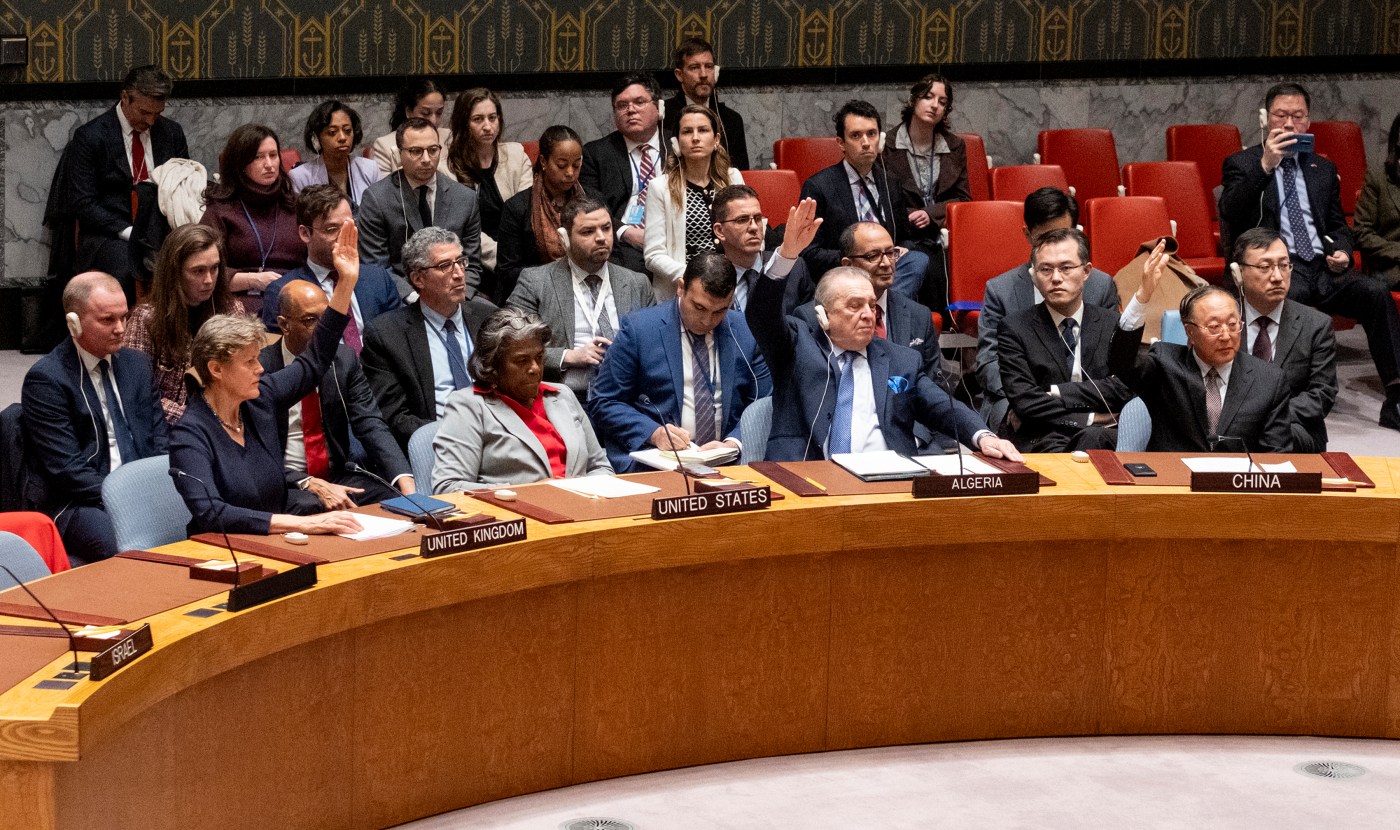
UN demands Gaza cease-fire
UNITED NATIONS — The United Nations Security Council on Monday issued its first demand for a cease-fire in Gaza, with the U.S. angering Israel by abstaining from the vote.
Israel responded by canceling a visit to Washington by a high-level delegation in the strongest public clash between the allies since the war began.
Prime Minister Benjamin Netanyahu accused the U.S. of “retreating” from a “principled position” by allowing the vote to pass without conditioning the cease-fire on the release of hostages held by Hamas.
White House national security spokesman John Kirby said the administration was “kind of perplexed” by Netanyahu’s decision. He said the Israelis were “choosing to create a perception of daylight here when they don’t need to do that.”
Kirby and the American ambassador to the U.N. said the U.S. abstained because the resolution did not condemn Hamas. U.S. officials chose to abstain rather than veto the proposal “because it does fairly reflect our view that a cease-fire and the release of hostages come together,” Kirby said.
The 15-member council voted 14-0 to approve the resolution, which also demanded the release of all hostages taken captive during Hamas’ Oct. 7 surprise attack in southern Israel. The chamber broke into loud applause after the vote.
The U.S. vetoed past Security Council cease-fire resolutions in large part because of the failure to tie them directly to the release of hostages, the failure to condemn Hamas’ attacks and the delicacy of ongoing negotiations. American officials have argued that the cease-fire and hostage releases are linked, while Russia, China and many other council members favored unconditional calls for a cease-fire.
The resolution approved Monday demands the release of hostages but does not make it a condition for the cease-fire for the month of Ramadan, which ends in April.
Hamas said it welcomed the U.N.’s move but said the cease-fire needs to be permanent.
“We confirm our readiness to engage in an immediate prisoner exchange process that leads to the release of prisoners on both sides,” the group said. For months, the militants have sought a deal that includes a complete end to the conflict.
The U.S. decision to abstain comes at a time of growing tensions between President Joe Biden’s administration and Netanyahu over Israel’s prosecution of the war, the high number of civilian casualties and the limited amounts of humanitarian assistance reaching Gaza. The two countries have also clashed over Netanyahu’s rejection of a Palestinian state, Jewish settler violence against Palestinians in the occupied West Bank and the expansion of settlements there.
Because Ramadan ends April 9, the cease-fire demand would last for just two weeks, though the draft says the pause in fighting should lead to “a sustainable cease-fire.”
The U.S. ambassador to the U.N., Linda Thomas-Greenfield, said the resolution “spoke out in support of the ongoing diplomatic efforts,” adding that negotiators were “getting closer” to a deal for a cease-fire with the release of all hostages, “but we’re not there yet.”


